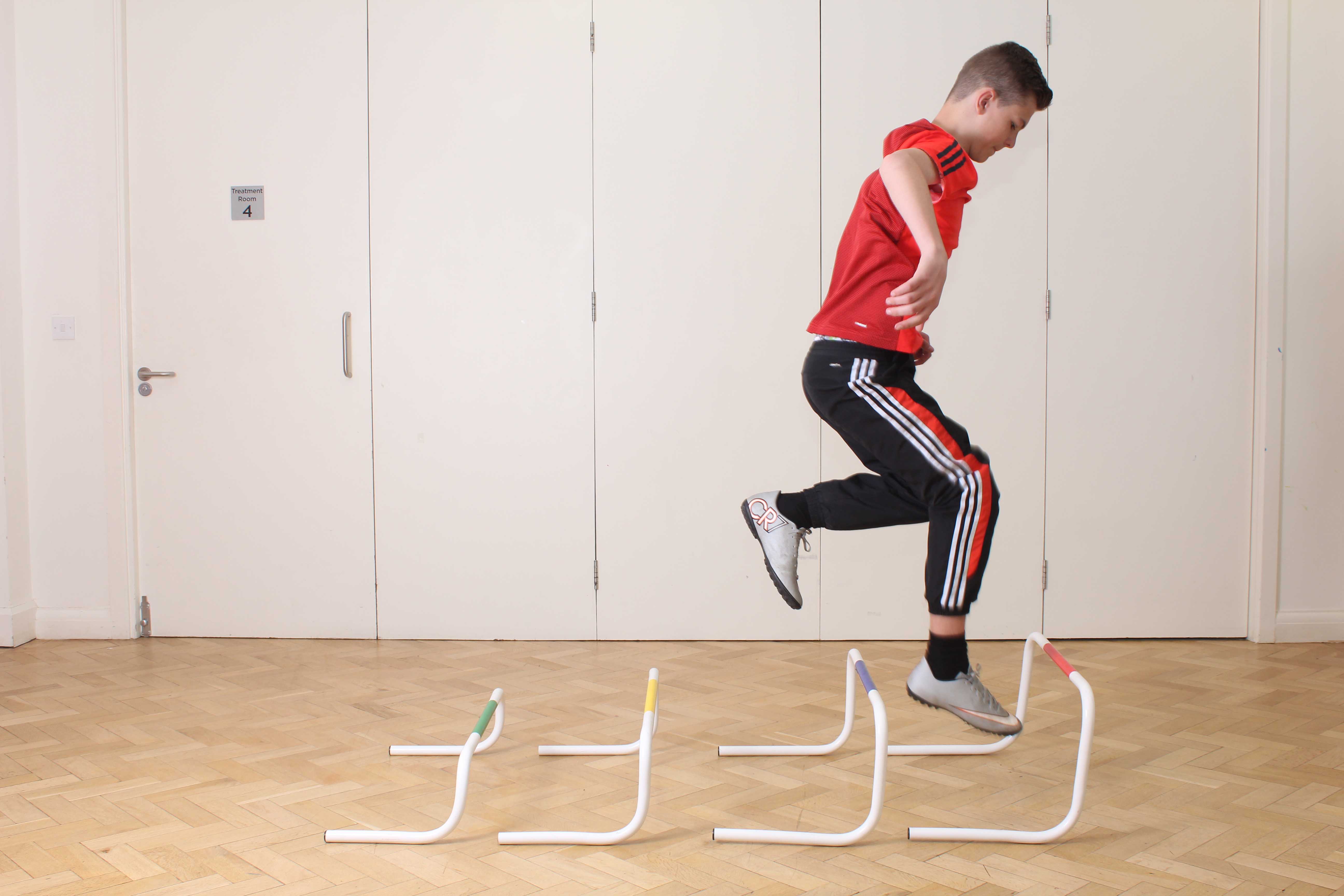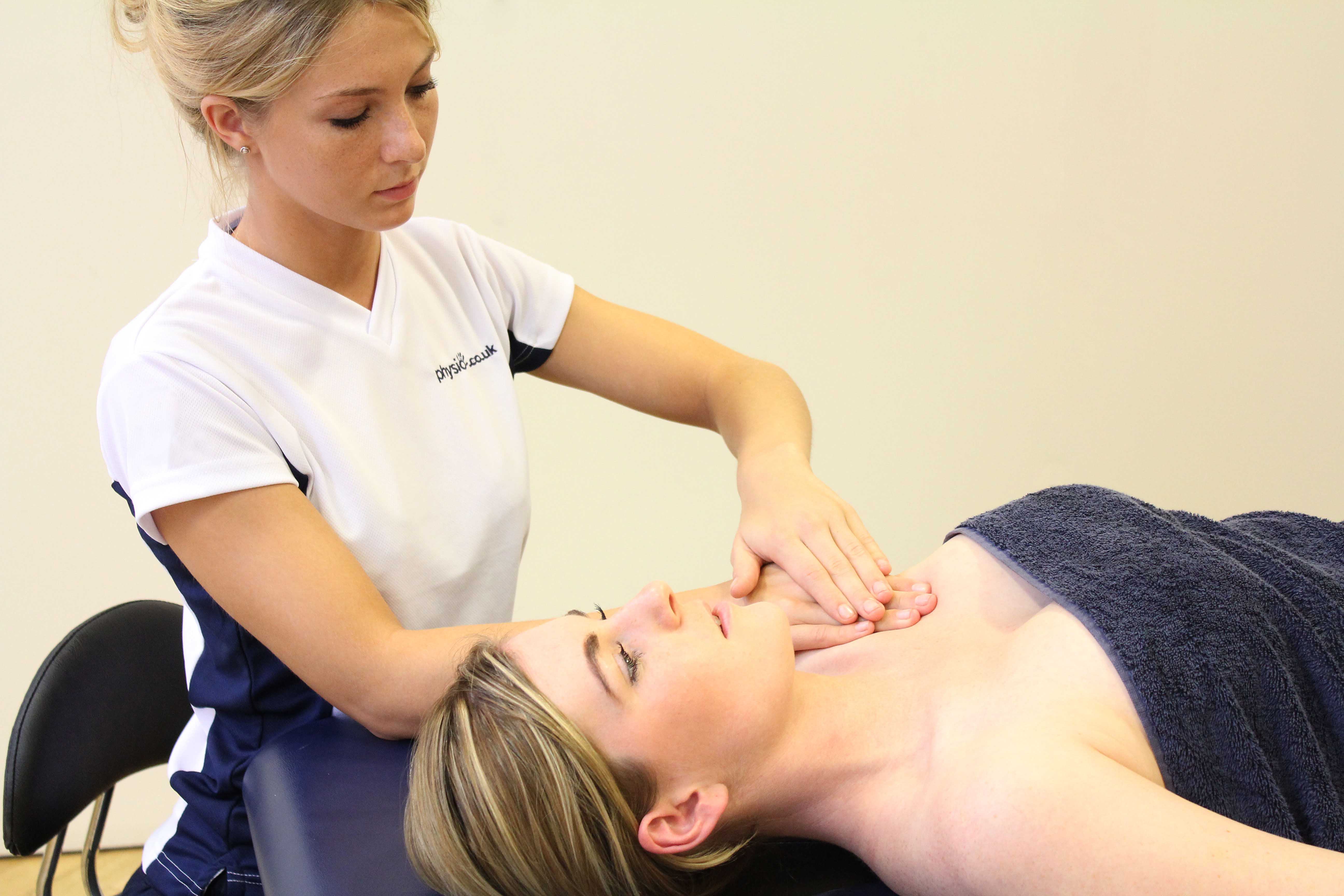The shoulder is comprised of the humerus, scapula and clavicle which articulate to form the shoulder joint. The shoulder is enclosed within a capsule, a flexible elastic structure which allows for the substantial range of motion. It is further supported through a series of ligaments and muscles which provide stability and movement. It is this capsule and surrounding ligaments which become inflamed, swollen and thickened. The normal elasticity is lost and your joint becomes increasingly stiff. It is not know what causes this problem with 2 main diagnostic criteria being used.
- Primary Idiopathic Frozen Shoulder – characterised by global limitation of movement, pain decreased compliance of the posterior capsule of the shoulder with no specific underlying cause
- Secondary Frozen Shoulder – usually appears following trauma or surgery where the soldier has been immobile for some time. Can occur in conjunction with other conditions such as impingement and rotator cuff tear.
- Freezing – This is the initial phase where the capsule and ligaments start to become inflamed. This stage is characterised by a slow onset of pain, becoming increasingly worse, and loss of motion. This stage lasts for approximately 3 months
- Frozen – This second phase last for approximately 3-9 months and is characterised by a slow reduction in pain with increasing stiffness and marked decreases in shoulder movement.
- Thawing – In the final phase, pain is minimal and the shoulder gradually starts to regain movement returning to normal. This phase can last up to 3 years.
 Above: Soft tissue massage of the trapezius muscle in the shoulder
Above: Soft tissue massage of the trapezius muscle in the shoulderPhysiotherapy prior to Arthroscopic Release of the Coraco-humeral Ligament
Physiotherapy prior to surgery is a useful and recommended intervention. Physiotherapy with Physio.co.uk is an effective conservative method in treating frozen shoulders offering advice, helping to reduce stiffness and improving range of motion. Where surgery is indicated, physiotherapy will help treat initial problems and maximise post surgical rehab through providing an optimal platform for rehabilitation. Treatment will consist of:
- Heat therapy
- Pain management
- Joint mobilisations
- Stretching
- Myofascial release
- Muscular strengthening programme
- Advice on surgery and post surgical management
Symptoms following Arthroscopic Release of the Coraco-humeral Ligament
Following surgery your shoulder will be placed in a protective sling and you will be encouraged to begin physiotherapy immediately. Immediate physiotherapy with Physio.co.uk will lead to an improved outcome and help you regain maximum functional use of your arm quicker. Common symptoms following arthroscopic release of the coraco-humeral ligament include:
- Pain
- Stiffness
- Swelling
Physiotherapy following Arthroscopic Release of the Coraco-humeral Ligament
Following surgery, Physio.co.uk will design a personal treatment programme to optimise the success of your operation. Physio.co.uk will provide a thorough assessment and explanation of treatment with attention paid to functional, occupational and sporting needs. Joint goals will be established and Physio.co.uk will develop a personal rehabilitation programme aiming to restore previous levels of function. Treatment will initially focus on acute management following surgery and progress on to regaining strength, pain free movement and function.
 Above: Following surgery on the shoulder, it's advised you seek physiotherpay treatment to help ensure you regain strength and range of movement.
Above: Following surgery on the shoulder, it's advised you seek physiotherpay treatment to help ensure you regain strength and range of movement.Weeks 1-3
Initial treatment will concentrate on minimising post-operative complications and managing acute symptoms. With early shoulder mobilisation critical to surgical success close care will be paid to initiating movement. Treatment will include:
- Cryotherapy
- Pain management
- Sling management
- Postural education
- Heat Therapy
- Pendulum exercises
- Early passive and active assisted range of movement exercises
- Active range of movement exercises
- Active exercises for elbow, wrist and hand
- Scapular setting
- Massage
- Stretching
- Electrotherapy
- Taping
- Advice and education
Weeks 4-6
At this stage you will be encouraged to increase your rehab so that movement in your arm is maintain and improved. It is possible that the shoulder will return to its previous, immobile state and so it is crucial to continue with focussed movement rehabilitation. Also, attention will be paid to restoring normal biomechanical movements through stability and proprioceptive exercises. Physio.co.uk will develop your programme with attention to personal requirements. Treatment will include:
- Joint mobilisations
- Increased passive and active rage of movement
- Rotator cuff strengthening
- Scapular stabilising
- Taping
- Soft tissue release
- Stretching
- Biomechanical assessment and re-training
Weeks 7-12
Following week 7 Physio.co.uk will focus on a continuation and progression of exercises. Rehabilitation will begin to include specific exercises needed to perform functional activities and be directed to attaining full range of movement, improving muscular strength and endurance. Treatment will consist of:
- Advanced joint mobilisations
- Soft tissue release
- Increased strengthening
- Shoulder strengthening
- Muscular endurance
- Progressive proprioceptive exercises
- Functional, sporting and occupational exercises
Weeks 12+
Following 12 weeks of intense physiotherapy with Physio.co.uk you will have regained range of movement and significantly improved muscular strength, endurance and control. With full recovery taking up to 6 months Physio.co.uk will intensify treatment, providing a comprehensive long term rehabilitation programme so that you are able to return to full sporting and social activities and maximise functional use of your arm.
- Attaining full range of movement
- Advanced strengthening of rotator cuff throughout range
- Advanced shoulder muscle strengthening
- Advanced proprioceptive exercises
- Functional training
- Long term management
Summary
Frozen Shoulder is a disabling condition characterized by increasing pain, stiffness and a gradual loss of joint motion and shoulder function. Frozen shoulders can be self resolving, often taking up to 3 years to settle. However surgery is indicated when movement is increasingly painful and restrictive and when all conservative treatment has been exhausted. Coraco-humeral ligament release is an arthroscopic surgery which releases the scarred and contracted ligament restoring joint mobility. Following surgery it is essential to undergo a comprehensive and complete rehabilitation programme with Physio.co.uk to restore movement, strength and pain free shoulder function and prevent reoccurrence. Call Physio.co.uk now on 0330 088 7800 for more information or to book an appointment please contact us.

 0330 088 7800
0330 088 7800





































